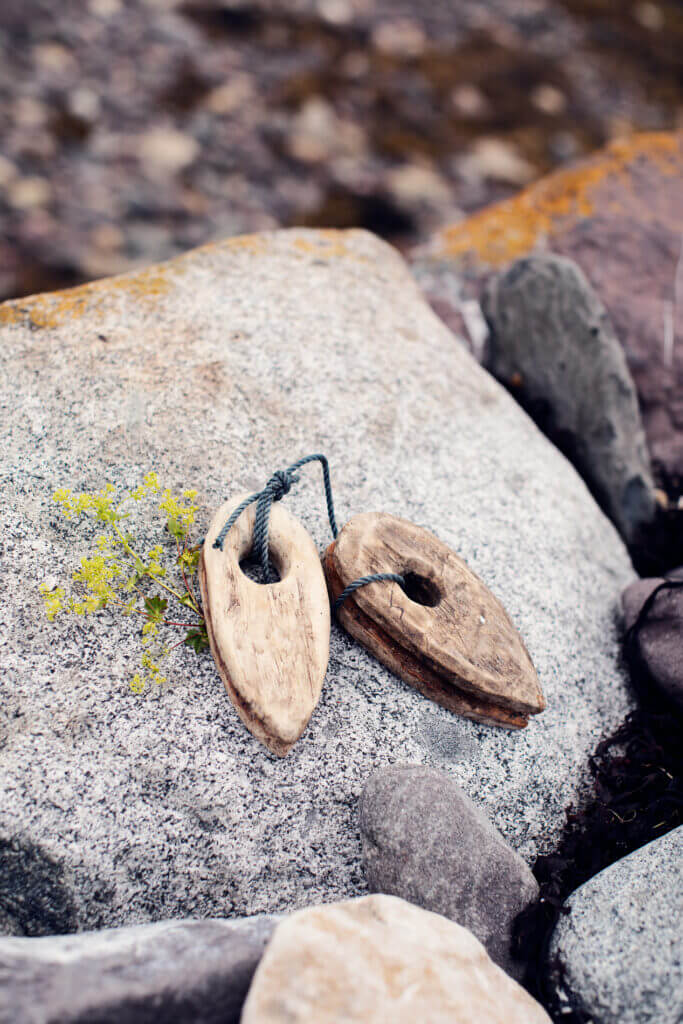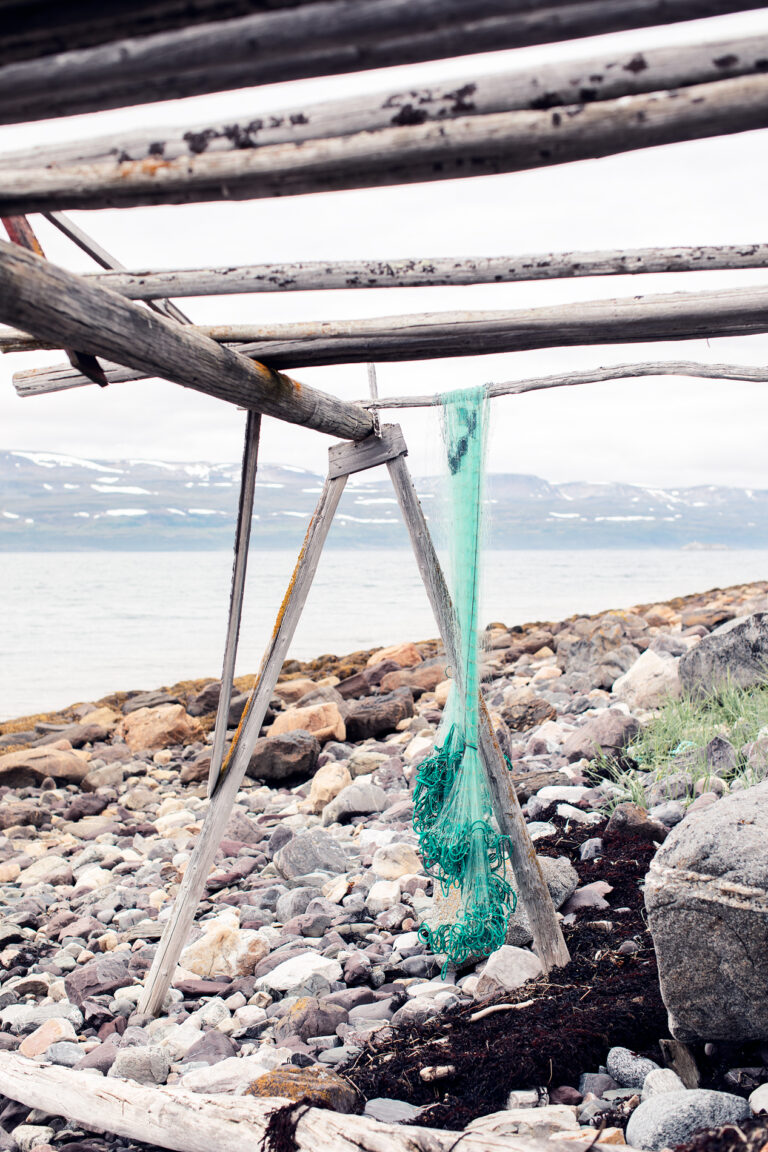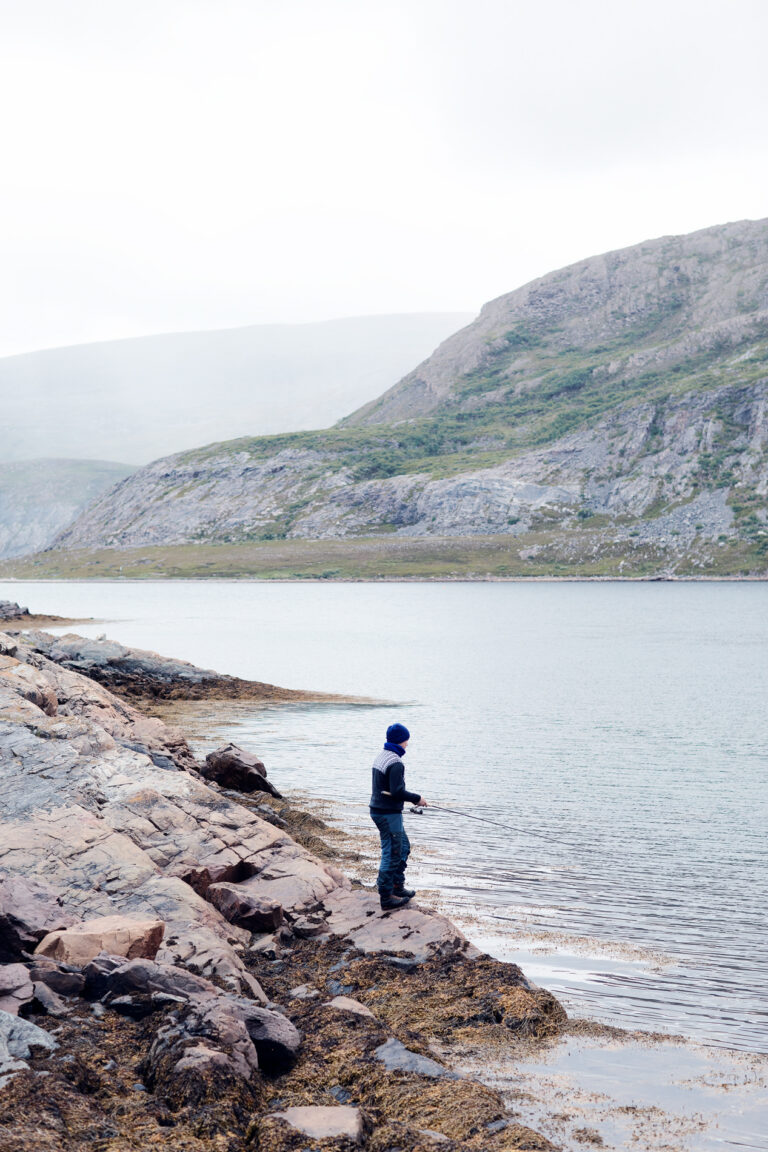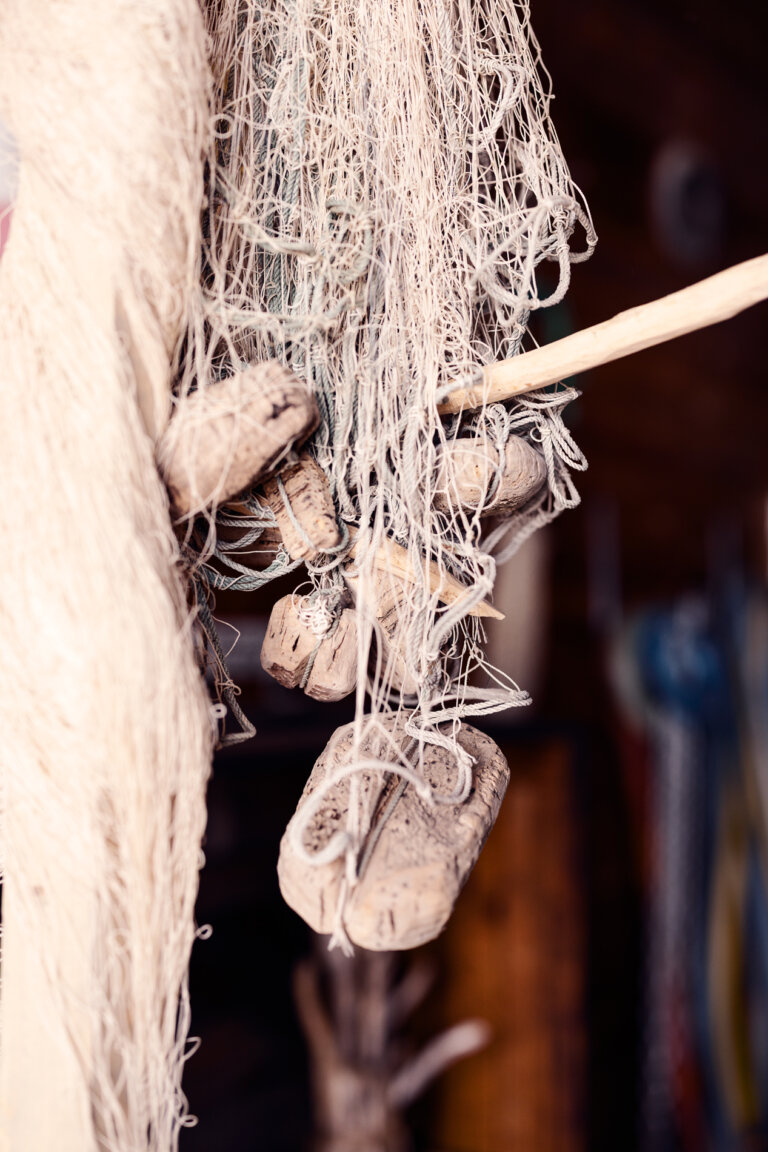Indigenous Knowledge & Sustainable Arctic Futures
«Birgejupmi» is the Northern Sámi word for “ways to manage/get by» – the idea of self-sufficiency. It embodies the principle of taking only what is necessary from nature, ensuring the ability to harvest again in the future. The BIRGEJUPMI Project aims to strengthen community engagement, Indigenous knowledge and environmental decision-making in Arctic coastal regions of Sápmi and Kalaallit Nunaat that is based on the interconnected relationships between coastal people and the sea. The project works as a bridge between Indigenous, Western and local knowledge systems. Our research is grounded in holistic, ethical and equitable community-based approach to research with strong Indigenous leadership and cooperation with Indigenous organisations.
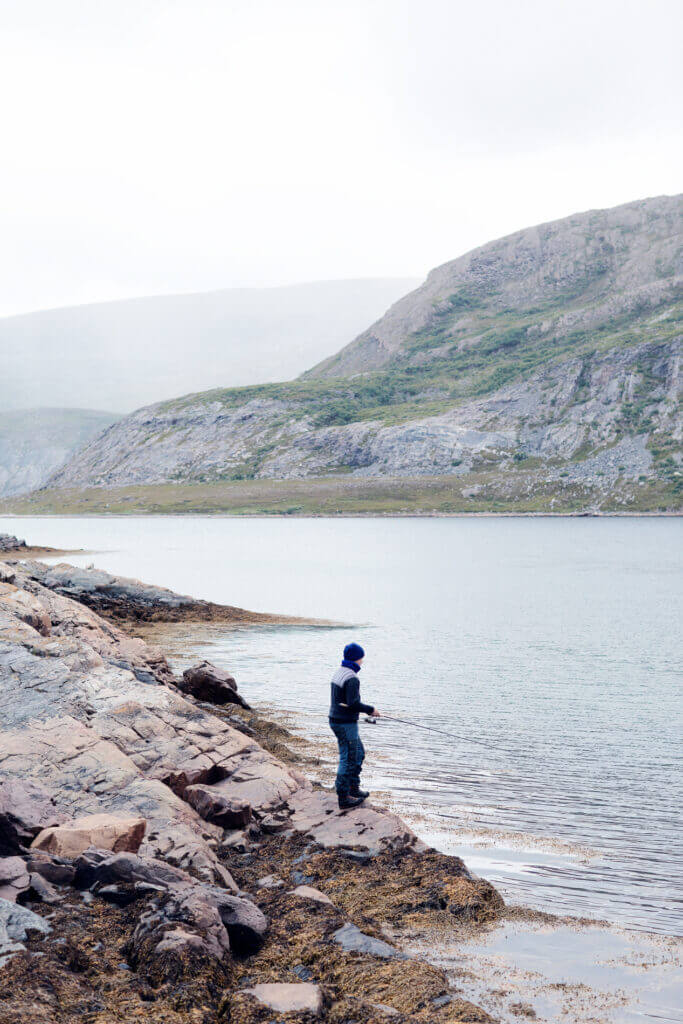
Key Research and Action Areas
BIRGEJUPMI’s work is organized into 14 interconnected work packages, each addressing specific aspects of research, knowledge co-production, and community-led action across Arctic coastal regions.
BIRGEJUPMI centers relational research that honours storytelling, personal reflection, mutual visits, and sharing experiences. The project embraces diverse art forms and culturally rooted land- and sea-based practices, both collective and individual.
Partner: Saami Council
This workpackage will identify knowledge gaps and research needs in Arctic coastal communities, provide replicable frameworks for research initiatives that support collaborative knowledge creation, and assess and identify best practices for co-creative/co-productive methods and their implementation within a circum-Arctic scope.
Learn morePartner: UiT - The Arctic University of Norway
WP2 aims to assess changes in human-species and ecosystem interactions in the Varanger and Porsanger fjords, evaluate current management of red king crab, pink salmon, and seals, revitalize Sámi Indigenous Knowledge on seals, and strengthen pan-Arctic Indigenous and local knowledge exchange on the marine environment.
Learn morePartner: University of Copenhagen
This work package contributes to uncovering silenced Indigenous knowledge and local knowledge within archival records from Arctic coastal communities, a deeper understanding of the relational values to environment via connections between art, healing, and the natural world, and innovative and multimodal methods to strengthen the visibility of Indigenous knowledge and local knowledge systems.
Learn morePartner: Research Institute for Sustainability at GFZ (RIFS)
The project aims at assessing the impact -including opportunities and challenges- of climate change mitigation measures as experienced by young people living in Finnmark. In doing so, the project wants to collaboratively engage and understand young people’s vision of future in relation to the expansion of power production and wind energy projects in the Arctic.
Learn morePartner: UiT - The Arctic University of Norway, Indigenous Voices
WP5 will co-develop future marine resources management and governance options informed by Indigenous knowledge, scientific and local knowledge through multi-stakeholder dialogue to address evolving fjord ecosystems, building on the work of WP2.
Learn morePartner: UiT The Arctic University of Norway
WP6 will explore and implement innovative approaches to transform the roles of museums, archives, and libraries, positioning them as new knowledge stewards/new Elders, and foster a shift in the interactions among knowledge centers and coastal Arctic communities.
Learn morePartner: Sámi Allaskuvla
WP7 will analyze the link between gender asymmetries (female out-migration leaving young men behind in higher education and art production) and existing forms of Indigenous education and knowledge validation.
Learn morePartner: University of Tartu
WP8 supports young people in Arctic coastal areas to take an active role in shaping their communities’ future in response to climate change and social challenges.
Learn morePartner: Dáiddadállu
WP9 Birgejupmi Through Art emphasizes art and craft as a tool of in one's environment, as a means of political survival and as a means of strengthening Indigenous voices and land and sea relations.
Learn morePartner: Saami Council
This WP ties into the work done on WP1, and cover reflexive ethics assessment and explicit engagement with methodological approaches throughout the project to support the development and application of co-creative and collaborative methods across all WPs and feedback insights to adjust project design continuously, promoting ethical and context-appropriate research practices and meaningful outputs.
Learn morePartner: Árvu AS
WP11 focuses on delivering a comprehensive communication and design package that enhances the visibility, credibility, and effectiveness of Birgejupmi.
Learn morePartner: Árvu AS
Building on WP11, WP12 will monitor and revise the CDEO strategy as needed in close collaboration with project partners and continue to support and advise the consortium on effective communication and outreach.
Learn morePartner: University of Oulu
WP13 is dedicated to ensuring the overall coordination and successful delivery of the project.
Learn morePartner: University of Oulu
WP14 leads the final phase of the Birgejupmi project, ensuring smooth coordination, thorough evaluation, and high-quality results.
Learn more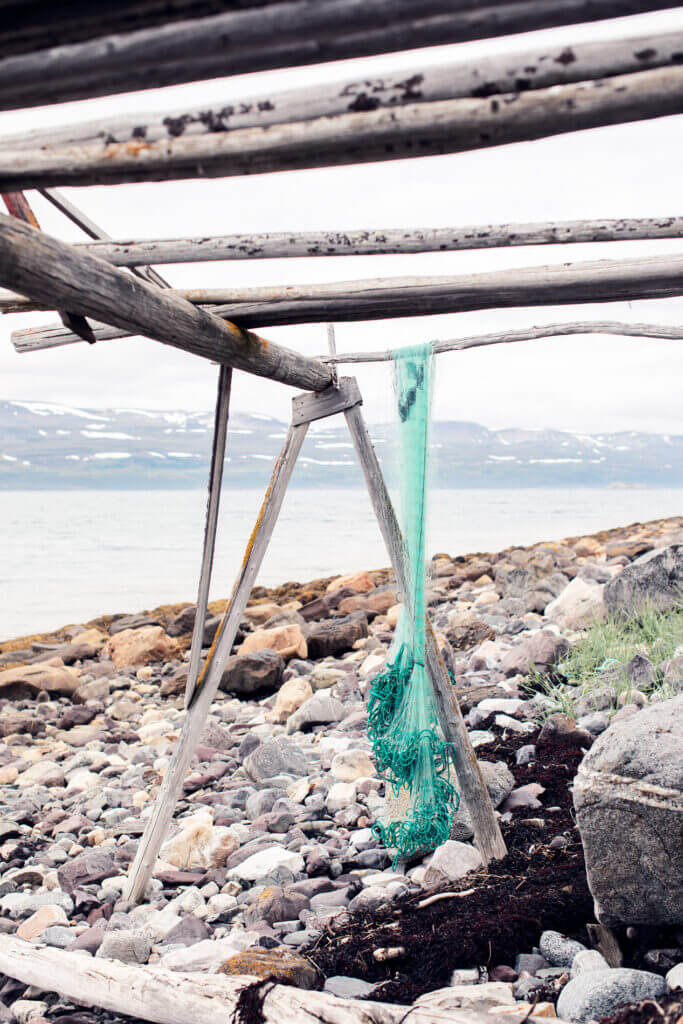
What is Birgejupmi?
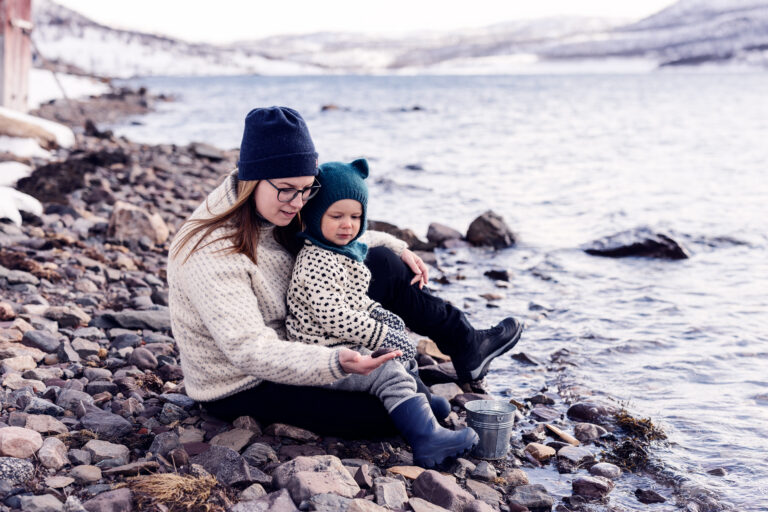
Knowledge Systems in Dialogue
BIRGEJUPMI brings together Indigenous, Western, and local knowledge to support sustainable Arctic coastal futures. Grounded in respect for Indigenous rights, presence, and ways of knowing, the project is guided by Etuaptmumk (Two-Eyed Seeing), articulated by Mi’kmaw Elder Albert Marshall. Through decolonial, co-produced research, BIRGEJUPMI centers relationships between people, sea- and coastscapes, strengthens Indigenous coastal governance and management practices, and documents livelihoods in Sápmi and Kalaallit Nunaat. This work supports community-led engagement and informs respectful policies that care for land, sea, and communities.

Living Archives of Land and Sea
BIRGEJUPMI bridges generations and perspectives-connecting youth, elders, researchers, and policymakers to support respectful, knowledge-based policies. Through art exhibitions, workshops, and community events, the project returns archival materials to Arctic coastal communities, fostering shared learning and strengthening knowledge from past generations to sustain land, sea, and communities together.
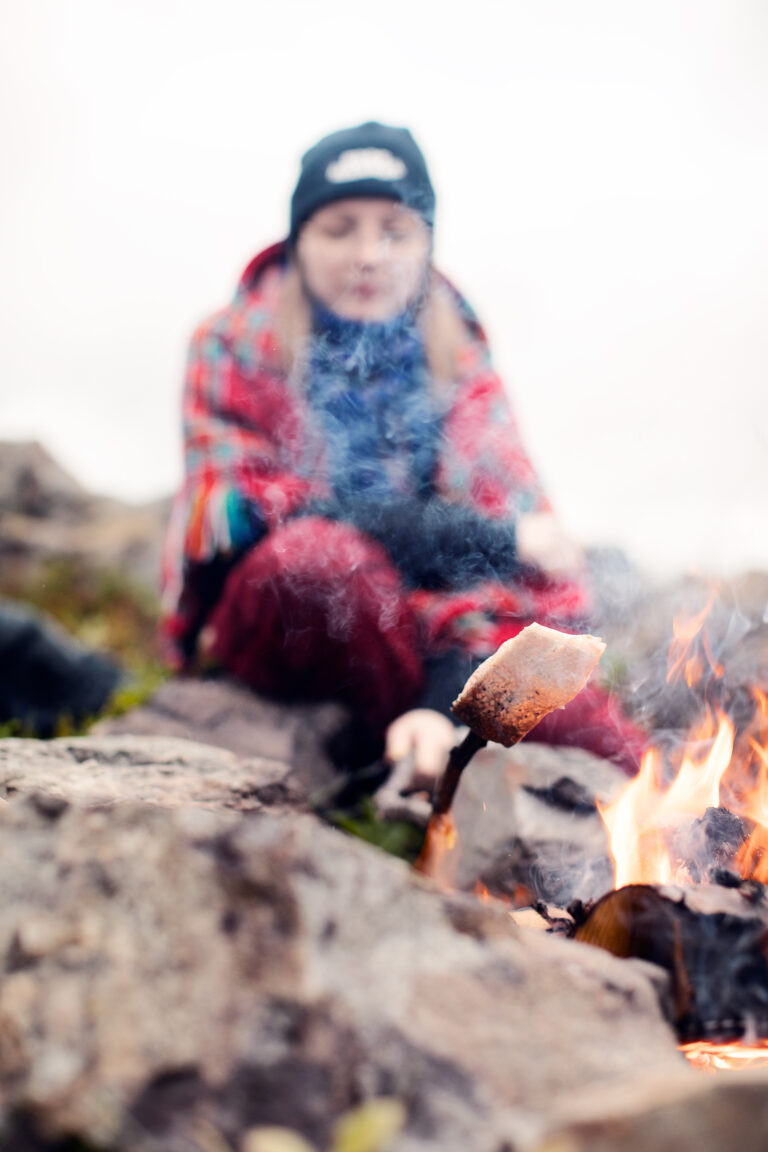
Youth & Arctic Futures
BIRGEJUPMI engages with Indigenous youth to explore lived experiences of environmental change and adaptation measures, including the effects of the green energy transition. Through co-design and co-curation, the project develops an exhibition that share young people’s hopes, ideas, and visions for alternative futures. Addressing challenges from invasive species to growing development pressures, BIRGEJUPMI strengthens local resilience and livelihoods.
Birgejupmi focuses on the Arctic coastal areas in Sápmi and Kalaallit Nunaat
Key regions of activity, highlighting research focus, thematic priorities and contextual relevance.
Click each place to read more
Igaliku is a southern village of approximately 30 people. The village and the nearby area is home to sheep herders and hunters. The area was inscribed on the UNESCO World Heritage List in 2017, as part of the “Kujataa Greenland: Norse and Inuit Farming at the Edge of the Ice Cap”. Birgejupmi researchers talked to herders and farmers about the changes they observe, challenges and future dreams.
Ilulissat is the third largest city of Kalaallit Nunaat in is placed in the municipality of the Avannaata. It is a place where Inuit-led local operators adapt to the climate challenges. Birgejupmi researchers, Vivi Vold, Paarnaq Rosing Jakobsen, and Naja Dyrendom Graugaard has hosted a workshop and a community peer review of our work, for Indigenous knowledge holders on the connections between land relations, healing, and health. Together with the experiences of the other visits to other towns and settlement, this contributes to the understanding of one health approach in the coastscapes of Kalaallit Nunaat.
Nanortalik is the southernmost town of Kalaallit Nunaat, and in this we talked to and visited the hunters and locals, among others we visited the local hunters meat market. To gain a bigger understanding of what the current struggles are, in contrast we also had conversations with locals about what relations they have with traditional and land-based teachings, that is linked to healing. This contributes to a deeper understanding of the relations between health and local cultural practices, such as how it is represented in the hunting profession.
Qaqortoq is the biggest town in the municipality of Kujalleq, in Southern Kalaallit Nunaat, with a population of app. 3000 inhabitants. Birgejupmi researchers, Vivi Vold and Naja D. Graugaard have visited local organizations and institutions to gain a deeper understanding of the relations between health and local cultural practices, such as how it is represented in the hunting profession, education and tourism.
Guovdageaidnu/Kautokeino is home to a strong traditional Sámi culture, closely connected to research and higher education rooted in the Sámi language. Here, knowledge is mobilized to shape the future of Sápmi.
Loabák/Lavangen is a key Birgejupmi site, selected for its Sámi heritage and strong local knowledge. Working with Gamtofta siida and healer Knut Lunde’s archive fosters dialogue, research, and Indigenous knowledge revitalization in this diverse coastal area.
Orjješ-Ráisa/Sørreisa is a key Birgejupmi site, valued for local Sámi knowledge and community strength. In partnership with Gamtofta siida and healer Knut Lunde’s archive, it fosters research, dialogue, and Sámi heritage revitalization.
Varanger is a vital Birgejupmi site facing climate, ecological, and green transition challenges. It supports Sámi marine knowledge, inclusive governance, and local empowerment through Indigenous-led resilience efforts.
Unjárga/Nesseby is a key Birgejupmi site where Sámi knowledge and youth co-design shape climate, marine, and invasive species research. Workshops and exhibitions explore future visions and assess wind energy’s cultural impacts, supporting Indigenous resilience and adaptation.
Berlevåg is a key Birgejupmi site where youth shape visions for sustainable futures. Through workshops and exhibitions, they explore wind energy and socio-environmental change, fostering inclusive climate decisions and Indigenous resilience in East-Finnmark.
Porsáŋgu/Porsanger is a key Birgejupmi site facing climate-driven ecological shifts. With Mearrasiida as a knowledge hub, the community revitalizes seal practices through workshops, supporting Sámi traditions, resilience, and sustainable coastal stewardship.
Álaheadju/Alta is a key Birgejupmi site, hosting workshops and working with Alta Museum. The museum’s Sámi heritage work helps counter colonial silencing and supports Indigenous empowerment and sustainable, knowledge-based development.
Nuuk is the capital of Kalaallit Nunaat with a population of app. 20,000 inhabitants. It is a vibrant, central town of Kalaallit Nunaat facing political, systemical challenges, as well as Inuit-led efforts for change. Birgejupmi researchers, Vivi Vold, Paarnaq Rosing Jakobsen, and Naja Dyrendom Graugaard has hosted a workshop for a Indigenous knowledge holders on the connetions between land relations, healing, and health.
News & Publications
Stay updated on our latest publications, events, news, reports, and research summaries.
Instagram Feed
Follow BIRGEJUPMI on Instagram for visual stories and insights beyond our publications.
Partners
Our partners bring expertise in birgejupmi, Indigenous ways of knowing, and coastal practices. Across regions, they are united through relational approaches and a shared commitment to Indigenous-led Arctic futures.
WP13 & WP14 Lead: Thora Herrmann, Professor, University of Oulu
thora.herrmann@oulu.fi
WP13 & WP14 Project Manager: Ruska Haavisto, MA, University of Oulu
ruska.haavisto@oulu.fi
WP13 & WP14 Administrative Manager: Jaana Toivola , University of Oulu
jaana.toivola@oulu.fi
WP2 Lead: Jan Erik Henriksen , Professor, The Arctic University of Norway (UiT) & Indigenous Voices (IVO)
jan.e.henriksen@uit.no
WP2 Co-Lead: Ida M. Hydle, Professor, The Arctic University of Norway (UiT) & Indigenous Voices (IVO)
ida.m.hydle@uit.no
WP3 Lead: Naja Dyrendom Graugaard, Associate Professor, Copenhagen University
ndg@hum.ku.dk
WP3 Partner: Wasiq Silan, Assistant Professor, National Dong Hwa University
an.gao@helsinki.fi
WP4 Lead: Ilaria Sartini, PhD, Research Associate, Research Institute for Sustainability (RIFS) | GFZ ilaria.sartini@rifs-potsdam.de
WP4 Co-Lead: Per-Henning Mathisen, Advisor, Arctic and Environmental Unit, Saami Council
per.henning@saamicouncil.net
WP5 Lead: Jan Erik Henriksen , Professor, The Arctic University of Norway (UiT) & Indigenous Voices (IVO)
jan.e.henriksen@uit.no
WP6 Lead: Britt Kramvig , Professor, The Arctic University of Norway (UiT)
britt.kramvig@uit.no
WP6 Partner: Wasiq Silan, Assistant Professor, National Dong Hwa University
an.gao@helsinki.fi
WP7 Lead: Samuel Valkeapää, Assistant Professor, Sámi Allaskuvla – Sámi University of Applied Sciences
samuelv@samas.no
kultuuriteadused.ut.ee/en/arctic-studies
WP8 Lead: Stephan Dudeck, PhD, Research Associate, University of Tartu
dudeck@ut.ee
WP9 Lead: Dine Arnannguaq Fenger Lynge, Dáiddadállu
dine@daiddadallu.com
WP10 Lead: Máret J. Hætta, Saami Council
Maret.heatta saamicouncil.net
WP11 & WP12 Lead: Karine Kimo-Skjåvik , Senior designer, Árvu AS
karine@arvu.no
WP11 & WP12 Co-Lead: Lone Synnøve Hegg, Business developer, Kreativ Industri AS
lone@kreativindustri.no
Principal Investigator: Wasiq Silan, Assistant Professor, National Dong Hwa University
wasiq.silan@gms.ndhu.edu.tw
